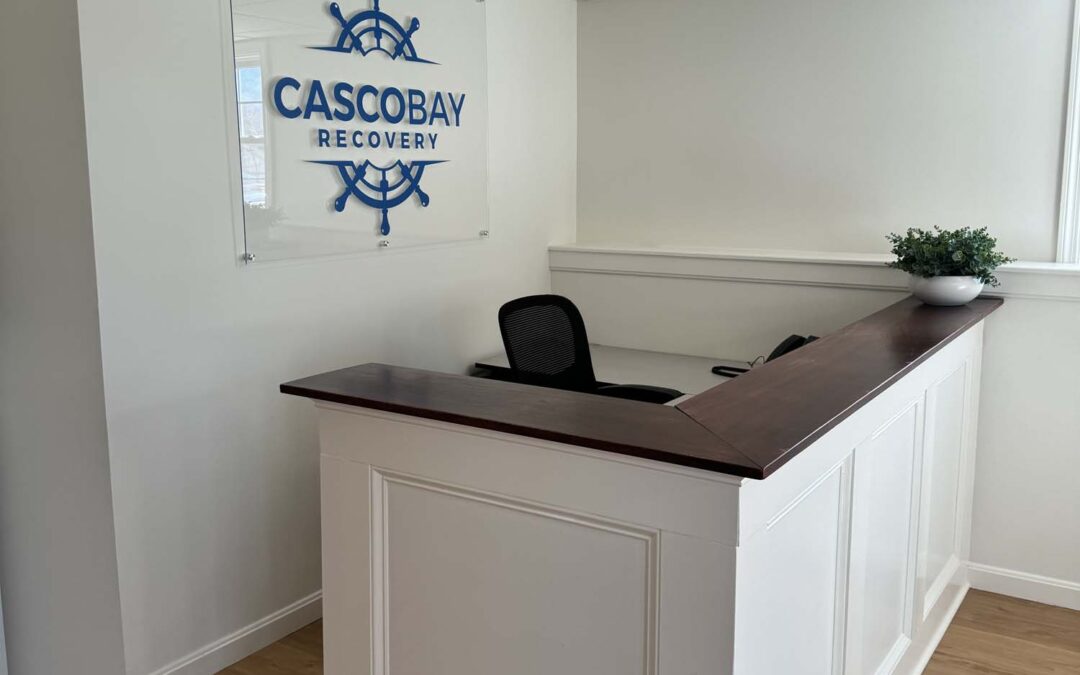Levels of Care in Rehab

Addiction treatment isn’t a one-size-fits-all solution. The journey to recovery requires different levels of support at different stages, which is why structured treatment services are essential for lasting success.
The American Society of Addiction Medicine (ASAM) has established five primary levels of care:
- Level 0.5: Early intervention services
- Level 1: Outpatient services
- Level 2: Intensive outpatient/Partial hospitalization
- Level 3: Residential/Inpatient services
- Level 4: Medically managed intensive inpatient services
Each level represents a different intensity of treatment, designed to match your specific needs and circumstances. These structured levels ensure you receive appropriate care based on:
- Severity of addiction
- Medical complications
- Mental health conditions
- Social support system
- Previous treatment history
Your treatment journey might start at any level, depending on your initial assessment. Some people begin with intensive inpatient care, while others may benefit from outpatient services. The key is matching you with the right level of care to support your recovery goals.
A professional assessment helps determine which level suits your needs best. This careful evaluation considers multiple factors, including substance use history, physical health, mental health, and your readiness to change.
If you’re unsure about which rehabilitation facility to choose, Casco Bay Recovery offers a range of options tailored to individual needs. They provide structured programs across all levels of care, ensuring that each patient receives the appropriate level of support based on their unique circumstances.
For those seeking women-specific rehab programs, Casco Bay Recovery also offers gender-specific addiction rehab in Portland, Maine. Their dedicated team is ready to assist you in finding the right program that aligns with your recovery goals.
If you’re looking for a reliable rehab center near you, consider exploring the options available at Casco Bay Recovery. Their comprehensive approach and commitment to personalized care make them a suitable choice for anyone on their journey to recovery.
Should you have any inquiries or need further assistance regarding their addiction treatment programs in Portland, Maine, don’t hesitate to contact Casco Bay Recovery. Their team is ready to help you navigate through your recovery process with the necessary support and guidance.
Types of Rehab Programs
Addiction treatment programs offer diverse paths to recover, each designed to meet specific needs and circumstances. Here’s what you need to know about the main types of rehab programs:
1. Residential Treatment Programs
- 24/7 medical supervision and support
- Structured daily routines
- Intensive therapy sessions
- Group and individual counseling
- Typically 30-90 days duration
2. Partial Hospitalization Programs (PHP)
- Structured daytime treatment
- 5-7 days per week
- 4-6 hours of daily therapy
- Return home each evening
- Medical monitoring available
3. Standard Outpatient Programs
- Flexible scheduling
- 1-3 sessions per week
- Individual counseling focus
- Ideal for mild substance issues
- Allows work/school continuation
4. Specialized Programs
- Gender-specific treatment
- Dual diagnosis care
- Executive programs
- Faith-based recovery
- Holistic treatment approaches
Each program type incorporates evidence-based therapies, including cognitive behavioral therapy, motivational interviewing, and group support. Your specific circumstances, substance use history, and personal responsibilities help determine which program type best suits your recovery journey.
Outpatient vs Inpatient Services
Choosing between outpatient and inpatient rehab services can significantly impact your recovery journey. Each option offers distinct advantages based on your specific needs and circumstances.
Inpatient Services:
- 24/7 medical supervision and support
- Structured environment away from triggers
- Intensive daily therapy sessions
- Immediate access to medical care
- Full immersion in the recovery process
- Typical duration: 30-90 days
Inpatient treatment provides a controlled environment ideal for severe addiction cases or those requiring medical detox. You’ll receive round-the-clock care while focusing solely on recovery.
Outpatient Services:
- Flexible scheduling around work or family commitments
- Living at home while receiving treatment
- Lower cost than inpatient programs
- Maintaining daily responsibilities
- Regular therapy sessions (2-3 times per week)
- Program length varies based on progress
Outpatient programs offer greater flexibility and independence. You’ll attend scheduled treatment sessions while maintaining your daily routine. This option works well for individuals with strong support systems and mild to moderate substance use disorders.
The effectiveness of either approach depends on factors like:
- Severity of addiction
- Co-occurring mental health conditions
- Home environment stability
- Support system strength
- Work and family obligations
- Previous treatment history
Understanding Individualized Treatment Approaches

Your path to recovery is as unique as your personal story. A one-size-fits-all approach simply doesn’t work in addiction treatment – that’s why individualized treatment plans are essential for successful recovery outcomes.
The Role of Comprehensive Assessment
A comprehensive assessment forms the foundation of your personalized treatment plan. This evaluation includes:
- Medical History: Physical health conditions and previous treatments
- Mental Health Screening: Co-occurring disorders and psychological needs
- Substance Use Patterns: Types of substances used and duration of use
- Social Support System: Family dynamics and community resources
- Personal Goals: Short-term and long-term recovery objectives
Adapting Your Rehab Plan
Your treatment plan adapts as you progress through recovery. Regular assessments help determine:
- Necessary adjustments to medication protocols
- Changes in therapy approaches
- Additional support services needed
- Progress toward recovery goals
Incorporating Various Therapeutic Approaches
Different therapeutic approaches might be incorporated into your plan:
- Cognitive Behavioral Therapy
- Dialectical Behavior Therapy
- Trauma-informed Care
- Family Systems Therapy
- Holistic Treatment Methods
The Strength of Individualized Treatment
The strength of individualized treatment lies in its flexibility. Your treatment team continuously monitors your progress and adjusts your care plan to match your evolving needs, ensuring you receive the right level of support at each stage of your recovery journey.
Stepping Up or Down: The Importance of Progression in Rehab Care Levels
Your recovery journey isn’t static – it’s a dynamic process that requires constant evaluation and adjustment. The ability to move between different levels of care ensures you receive the right support at the right time.
Signs You Might Need to Step Up:
- Increased substance cravings
- Emerging mental health symptoms
- Environmental triggers becoming overwhelming
- Difficulty maintaining sobriety
- Risk of relapse
Signs You’re Ready to Step Down:
- Consistent progress in therapy
- Strong coping mechanisms
- Stable mental health
- Solid support system
- Sustained period of sobriety
The flexibility to adjust treatment intensity helps maintain momentum in your recovery. When you need more support, stepping up to a higher level of care provides additional structure and supervision. As you gain confidence and stability, stepping down allows you to practice recovery skills with greater independence.
Your treatment team continuously monitors your progress, making recommendations for level changes based on:
- Treatment response
- Mental health stability
- Physical health status
- Support system strength
- Life circumstances
- Recovery goals
These adjustments ensure you receive care that matches your current needs, maximizing your chances of successful, long-term recovery.
Understanding Intensive Outpatient Programs (IOP) and Their Role in Rehab
Intensive Outpatient Programs (IOP) are an essential part of addiction recovery. They provide structured treatment while allowing individuals to fulfill their daily responsibilities. Here’s what you can expect from an IOP:
- Group therapy sessions: These sessions occur 3-4 times a week and provide a supportive environment for sharing experiences and learning from others.
- Individual counseling: One-on-one sessions with a therapist help address personal challenges and goals in the recovery journey.
- Life skills development: Building practical skills such as communication, problem-solving, and stress management to enhance overall well-being.
- Relapse prevention training: Learning strategies to identify triggers, cope with cravings, and prevent relapse.
IOPs offer flexibility for individuals who require ongoing support after completing residential treatment, need structured care while balancing work or family commitments, have a stable living environment, or demonstrate strong motivation for recovery.
What to Expect from an IOP Rehab Schedule
In general, IOPs involve 9-12 hours of programming each week, spread out over several days. This structure allows participants to practice their recovery skills in real-life situations while still having access to professional support.
Here’s what your typical week in an IOP might look like:
- Morning or evening sessions: To accommodate work schedules, some sessions may be held in the morning or evening.
- Family therapy components: Involving family members in therapy sessions can strengthen support systems and improve communication.
- Drug screening: Regular drug screenings may be conducted to ensure accountability and maintain a drug-free environment.
- Peer support meetings: Participating in peer support meetings helps build connections with others who are also on the path to recovery.
The Importance of IOPs in Transitioning Care
IOPs play a crucial role in the transition from residential care to regular outpatient services. This level of care helps individuals gain confidence in their recovery skills while gradually becoming more independent.
The duration of an IOP program varies based on individual progress and needs but typically lasts between 8-12 weeks.
Finding Help in the Journey to Lasting Sobriety
Your path to recovery is unique, and finding the right level of care is crucial for lasting sobriety. At Casco Bay Recovery, we understand the challenges you face and provide comprehensive treatment options tailored to your needs.
Don’t let addiction control your life any longer. Our evidence-based treatment programs and dedicated team are here to support your journey to recovery. Your transformation starts with a single phone call.
Contact Casco Bay Recovery to begin your path to lasting sobriety.








